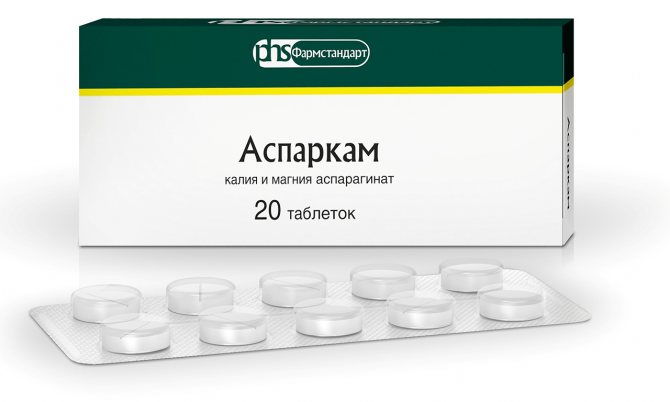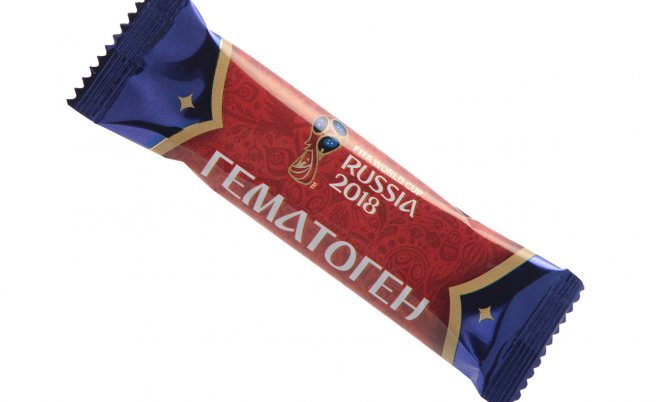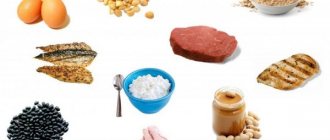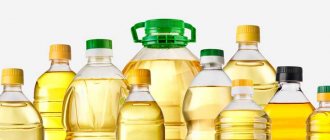Building muscle can often be difficult. Everyone knows or has heard of someone who gets the desired shape without much effort. However, not many people can boast of such genetics, and if you are not one of them, then a properly structured strategy for taking sports supplements can help you.
If you want to get the most out of your workouts, you need to know how your body builds muscle and what supplements can help you achieve each specific goal. We have prepared for you a list of the six best supplements that will help you build muscle mass. He will help you make the right choice.
Creatine
Creatine is a molecule produced by your body that provides energy to muscle and other tissues.
However, taking it as a dietary supplement can increase muscle creatine levels by up to 40% above normal levels.
This affects muscle growth and your overall performance. In fact, many studies confirm this.
If you want to gain muscle mass, then this is great news for you. Increased strength performance leads to better training, which in turn leads to even greater strength in your muscles.
Creatine also increases the water content of muscle cells, which helps them swell, signaling muscle growth.
In addition, this supplement can increase the level of a hormone involved in muscle growth, such as IGF-1.
Some studies also show that creatine interferes with the breakdown of protein in your muscles.
In general, scientists agree that creatine promotes muscle growth and, moreover, is safe.
If you don’t know which sports nutrition is best for muscle growth, then first of all we advise you to consider keratin.
Summary: Creatine is probably the best supplement option for muscle growth. Many scientific studies confirm that it helps build muscle mass.
Is simply consuming protein enough to build muscle?
Although protein promotes muscle growth, there are other supplements and nutrients that can also help this process.
Squirrels
Eating amino acid-rich protein sources will increase the rate of muscle protein synthesis both at rest and after exercise.1
Research shows that combining resistance training with a daily protein intake of 1.4-1.8 grams of protein per kilogram of body weight is enough to build muscle.2
If you want to lose fat and build muscle, you may need more protein. Recent research has shown that even with a negative energy balance, you can build muscle mass, but this requires consuming large amounts of protein.3
In a recent study, scientists compared the results of daily intake of 1.2 g and 2.4 g of protein per kilogram of body weight. Eating more protein has been shown to be more effective for building muscle mass.3
Therefore, to increase the likelihood of muscle growth while in a calorie deficit, you should aim to consume 2.4 grams of protein per kilogram of body weight.
Summary: Protein is essential for building muscle, but the amount you need will depend on your goals. For example, if you are in a calorie deficit and want to continue building muscle, you will need to increase the amount of protein in your diet.
Carbohydrates
It has been scientifically proven that, compared to eating protein alone, taking protein in combination with carbohydrates can help increase muscle protein synthesis.4
In addition, eating carbohydrates will increase glycogen stores. Carbohydrates are stored in the body as glycogen, which is used for energy production. This is important because any workout needs fuel, and its source is glycogen. Research shows that glycogen can be depleted by as much as 40% during resistance training.5
Thus, including carbohydrates in your diet can be beneficial - it can promote better recovery and increase the rate of muscle protein synthesis.
For those who train with heavy weights, such as bodybuilders, it is recommended to consume up to 5-6 g of carbohydrates per kilogram of body weight per day.7
Summary: Carbohydrates are stored in the body as glycogen, which is used as an energy source throughout the day and during exercise. After exercise, you need to replenish these energy stores, so it is important to consume carbohydrates after exercise.
Fats
The link between fat intake and increased muscle mass has not been supported by research—results are inconclusive.7 However, some studies suggest that low-fat diets may lower blood testosterone levels, which in turn may affect muscle size.8
There is also some evidence to suggest that omega-3 supplements may help increase muscle protein synthesis by making muscle cells more sensitive to amino acids. However, data on this issue are somewhat contradictory.
It is now believed that when you consume adequate amounts of protein, the effect of omega-3 supplementation on muscle protein synthesis is negligible.
However, if you can't get enough protein, omega-3 supplements may help.
Summary: Although there is limited evidence to date on the potential benefits of fat for muscle gain, if you consume a small amount of protein, consuming omega-3s may potentially help increase muscle protein synthesis.
Protein supplements
Eating enough protein is absolutely essential for muscle growth.
In particular, to gain weight, you need to consume more protein than you can break down.
It is possible to get enough protein from food, but this is a challenge for many.
If you belong to this category, we recommend choosing the right protein supplement.
Sports nutrition for gaining muscle mass is very diverse, but the most popular are casein and soy protein. Other protein supplements contain protein derived from eggs, beef, chicken and other foods.
Research shows that consuming extra protein leads to slightly more muscle growth than consuming extra carbohydrates.
However, these supplements have the greatest effect on people who do not get enough protein from their diet.
Moreover, scientists have concluded that consuming large amounts of protein supplements does not affect muscle growth in those whose diet is already high in protein.
Many people are interested in what their daily protein intake should be. If you are actively training, then the best proportion would be 1.2-2.0 g per kg of weight.
Summary: Eating adequate protein is an essential part of building muscle. However, if your diet contains enough protein, then resorting to protein sports nutrition is not necessary.
Best Supplements for Building Muscle
1. Whey Protein
Whey protein has a high absorption rate. This means that the amino acids contained in the whey protein shake will be ready for muscle building soon after consumption.10
When you consume protein, it is digested and amino acids enter the bloodstream. The faster protein is digested, the faster the effects of the amino acids needed to build muscle appear.10
Whey protein also contains a large amount of leucine, which is necessary to trigger muscle protein synthesis in the body.11
Due to the rapid absorption rate of whey protein and its amino acid content compared to a regular shake, consuming a whey protein shake will have a better effect on muscle growth after resistance exercise.12
2. Casein protein
Casein is a protein found in milk and other dairy products. Research shows that due to its slow digestion, casein, compared to whey protein, increases muscle protein synthesis.10
Research has also shown that casein reduces muscle protein breakdown, where muscle protein is broken down for use as energy.13
This is an important property because it will help your body maintain a positive muscle protein balance, which is necessary for building muscle mass.
Because of this property, casein has been promoted as a healthy protein to take before bed, as it supports an increased rate of protein synthesis during the night's sleep when food is not being consumed.14
3. Protein blends
These are special shakes containing both whey protein and casein, which theoretically provide the beneficial properties of both ingredients. Whey protein will provide a high initial rate of muscle protein synthesis, and casein will help prolong this rate over time.15
In a study where subjects did resistance training for ten weeks, subjects who took a mixture of casein and whey protein gained more muscle than those who used whey protein alone.16
4. Creatine
When it comes to building muscle, creatine is considered one of the best supplements available. Research suggests that those who take creatine as a supplement can gain nearly twice the amount of muscle mass compared to those who do not.17
The exact mechanisms behind the process of muscle growth are unclear, but it is believed that they may be related to the ability to perform more high-quality training.17
For more information on the benefits of creatine, check out our article “What is creatine for? How to use?".
With adequate creatine reserves in your body, you'll be able to perform extra reps and improve recovery between sets. Over time, this will lead to increased muscle mass.17
5.BCAA
Branched chain amino acids contain leucine, which acts as a “catalyst” to increase the rate of muscle protein synthesis.11
Research has shown that when BCAAs are taken with a low-protein meal, the amino acids “pull out” the low-protein meal, providing a similar increase in the rate of muscle protein synthesis.18
This makes BCAAs an excellent supplement for those looking to gain muscle mass while following a vegetarian or vegan diet.
6. Hydroxymethylbutyrate or HMB
HMB is produced in the body after consuming leucine. Studies have shown that HMB supplementation, taken for 3-6 weeks along with resistance training, increases muscle mass by 0.5 kg to 1 kg.2
Hydroxymethylbutyrate is now believed to speed up the process of muscle regeneration after high-intensity and long-term training and, like casein, helps reduce muscle protein breakdown.2
Studies have shown that this result is most pronounced in less trained people. This is because it takes less training to damage muscle tissue in order to see noticeable results from taking HMB.2
The most optimal dosage of HMB is 1.5-3 g per day.2
Gainers
Gainer is a supplement that helps you consume more calories and protein. They are usually used by those people who have difficulty gaining weight even with the necessary training and proper diet.
The calorie content of gainers may vary, but in general they do not exceed 1000 calories per serving.
Many people think that calories come from protein, but they actually come from carbohydrates.
High-calorie supplements typically contain 75-300 grams of carbohydrates and only 20-60 grams of protein per serving.
Such supplements are needed to consume more calories, however, it is worth remembering that these are not “magic pills”.
Some studies of physically inactive adults suggest that a significant increase in caloric intake can lead to muscle growth when consuming adequate amounts of protein.
However, it has been found that muscle gainers may not have any effect on muscle growth in exercising adults.
In general, it is recommended to take such supplements only if you have difficulty eating enough food and would find it easier to drink a shake.
Summary: Gainers are high-calorie supplements that help you consume the required amount of protein and calories. They are only recommended for people who have difficulty getting enough calories from food.
Recommendations from experts
Almost every professional bodybuilder takes medications to restore strength, balance metabolism and, of course, gain weight. However, the use of such drugs should be approached with caution.
Therefore, advanced athletes recommend:
- Before starting treatment, you must be examined by doctors to check the compatibility of the components;
- poor diet and weight gain pills can lead to abnormal metabolism;
- In addition, the process of training and strength loads must be properly structured.
The main thing is to remember that improper use is dangerous to human health. After all, most of the tablets increase the overall tone of the body and affect anabolic hormones, which greatly affects the psycho-emotional state.
Beta-alanine
Beta-alanine is an amino acid that helps reduce fatigue and increase productivity. In addition, it helps to gain weight with regular training.
One study found that taking 4 grams of beta-alanine per day for eight weeks increased the body weight of college football players and wrestlers more than a placebo.
In another study, scientists concluded that if you take this supplement for 6 weeks and do high-intensity interval training, your muscle mass will increase by 0.45 kg.
More research is needed on this topic, but it is clear that this supplement promotes muscle growth during exercise.
Summary: Beta-alanine is an amino acid that can improve performance during training. Some studies also suggest that it affects muscle growth with regular exercise.
Branched Chain Amino Acids (BCAAs)
Branched chain amino acids are leucine, isoleucine and valine.
They are found in many sources of protein, especially animal sources - meat, chicken, eggs and fish.
BCAAs are absolutely essential for muscle growth and make up 14% of all amino acids in muscle tissue.
Each of us consumes them in food every day, but these amino acids are also popular as a supplement.
Some studies have shown that BCAAs help gain muscle weight and prevent muscle loss compared to a placebo.
However, opposing studies have not found a beneficial effect of branched chain amino acids on muscle growth.
Again, it is likely that sports nutrition for gaining muscle mass containing BCAA will only help if your diet is characterized by a deficiency.
Summary: Branched chain amino acids are important for muscle growth. They're found in many foods, but it's unclear whether consuming more of them will benefit muscle growth if you're already eating a high-protein diet.
Rating of effective drugs
Pharmacy medications are used quite often in the world of professional sports. At the same time, they play only a supporting role in gaining weight, increase the efficiency of power loads and accelerate recovery processes.
Diabetes
The drug has anabolic functions, which has a positive effect on any man. In sports, it is used for weight gain, as it enhances hormones that support anabolism. Using diabetes is the same as giving a man powerful injections to gain weight, since it is based on insulin.
Calcium glycerophosphate
The tablets have earned high popularity among athletes, as they replenish calcium deficiency and increase the degree of absorption of protein elements. Due to the active substance, body weight grows quickly. Depending on the dosage of the drug, appetite increases, which leads to weight gain. Therefore, you need to strictly adhere to the instructions and increase the calorie content of a balanced diet.
Potassium Orotate
In sports, it is believed that metabolic supplements are the best for gaining muscle mass without excess fat. These include orotic acid, a mineral salt that replenishes the function of protein metabolism. That is why these tablets are often used by security forces to gain muscle weight. In addition to being used for quick weight gain, the pills replenish energy balance after workouts. The tablets are sold at the pharmacy.

Asparkam
Effective pills that can quickly help a male athlete regulate his metabolism. This is one of the pharmacy options, a source of potassium and magnesium, which serves to gain weight, prevent cramps and increase performance. You can buy this medicine for weight gain at any pharmacy. But such means must be treated with extreme caution. Improper intake of asparkam and a balanced diet can cause weight loss.
Riboxin
Improves energy metabolism, blood circulation and regenerates muscle tissue. Helps to gain weight in combination with drugs such as potassium orotate. Additionally, it can be taken to increase heart contractions and treat arrhythmia.
Fish fat
This is the same as omega-3 supplements from sports nutrition. Without fish oil, a course of any over-the-counter weight gain pills will not be effective. After all, it replenishes essential carbohydrates and fats that affect tissue metabolism in the muscles.
Hematogen
Preventative, energy bars known throughout the world. Athletes use them to restore and increase red blood cells, iron, vitamins and minerals. Due to the replenishment of carbohydrate-fat elements, such tasty preparations are indispensable in sports. After all, their high calorie content is directly related to weight gain. Their great advantage is that they are available without a prescription, unlike steroid tablets for weight gain.

Brewer's yeast
These are unique dietary supplements consisting of 40% pure proteins and amino acids. Thanks to this composition, they are used for weight gain. The remaining 60% of the composition consists of vitamins B, P and D, which help fill the body with copper, selenium, potassium, magnesium, and phosphorus.
HMB
Beta-methylbutyrate hydroxide (HMB) is a molecule formed during the processing of the amino acid leucine.
It is responsible for the benefits of protein and leucine in the diet.
While it is produced naturally in the body, consuming it in supplement form can have a positive effect on muscle growth.
Several studies in which the subjects were non-exercising adults have shown that consuming 3-6 grams of HMB per day increases your body weight.
However, the same dosage of HMB has no effect on adults whose daily ritual is exercise.
This means that HMB is most effective for those just starting to exercise or increasing their training intensity.
Summary: HMB may help those new to the gym, but is not effective for those who train regularly.
Other Supplements
It is suggested that some other supplements such as linoleic acid, glutamine, carnitine, and testosterone boosters also have a positive effect on muscle growth.
However, information on this matter is quite contradictory.
- Conjugated linoleic acid is a group of omega-6 fatty acids that affect the body in several ways. Research into whether this acid helps increase muscle mass has yielded mixed results.
- Testosterone Boosters – Testosterone boosting supplements include D-aspartic acid, Tribulus terrestris, fenugreek, DHEA, and ashwagandha. These compounds are likely only beneficial for those with low testosterone levels.
- Glutamine and carnitine - These are probably not effective for weight gain in young or middle-aged people. However, research has shown that carnitine may have a positive effect on muscle growth in older adults.
Summary: Many types of supplements are thought to increase muscle size, but there is little evidence that they are effective for healthy, active people.
Let's sum it up
Supplements will not provide maximum muscle growth if you do not have a nutrition and exercise program.
To grow muscles, you need to consume enough calories and protein, as well as perform strength training, ideally with additional weights. Once your eating and exercise patterns are under control, you can start choosing a sports pit.
Creatine and protein supplements are probably the most effective choices for increasing the lean portion of body mass, but other supplements may be beneficial for certain people.
Source: https://authoritynutrition.com/supplements-for-muscle-gain/











